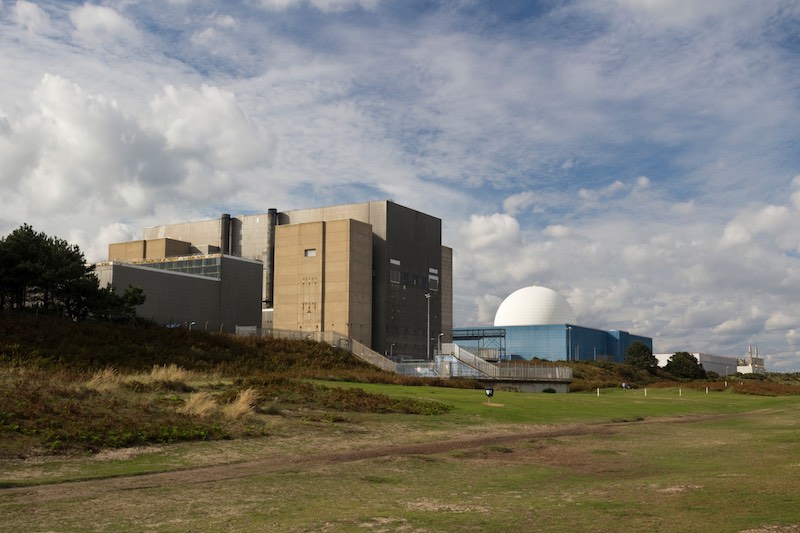Plans for Sizewell C Nuclear Plant Submitted

French utility company EDF and China General Nuclear (CGN) have submitted a planning application to the government for the long-proposed Sizewell C nuclear reactor, on the coast of Suffolk.
The location is already home to two reactors: Sizewell A, shut down in 2006 after forty years of operation and currently being decommissioned, and Sizewell B, expected to remain online until 2055. The proposed Sizewell C reactor will be larger than both, with a capacity of 3.2 gigawatts, capable of generating 7% of the UK’s power.
Managing director of the project Humphrey Cadoux-Hudson said the plant would supply “always-on” low-carbon electricity for six million homes, support 25,000 jobs and 1,000 apprenticeships during construction and “kick-start the economy following the coronavirus crisis.” EDF also said the plant would reduce the UK’s reliance on imported electricity, which last year accounted for 6.4% of the power supply.
EDF hasn’t produced an estimate of the total cost of the project or secured funding for it but has said Sizewell C will be a “near-identical replica” of Hinkley Point C, currently under construction, thus cutting 20% from construction costs.
The planning process, which will solicit public participation, is expected to take 18 months, with the government making the final decision sometime in 2021.
However, the plant has already yielded controversy—for its cost, environmental impact, and the involvement of Chinese state-owned firm CGN.
CGN is the junior partner to EDF in the Sizewell project, with a 20% stake, and in the Hinkley Point C plant, but is aiming to take the lead on another nuclear plant at Bradwell in Essex, using its own reactor design.
Several Conservative MPs have raised concerns about the involvement of Chinese firms in critical UK infrastructure, including CGN in atomic power and telecoms company Huawei in the 5G mobile networks.
Neil O’Brien, MP for Harborough and co-founder of the China Research Group, said: “It is a really important decision: do we want to regain the ability to build our own nuclear power stations . . . or are we happy to get supply from friendly third countries, or are we happy for anyone to control it?”
The backlash against CGN and the Sizewell project comes amid heightened tensions between the West and China as the world still reels from the COVID-19 pandemic. Prime Minister Boris Johnson has ordered a national security review into Huawei and other Chinese telecoms firms’ involvement in the construction o the UK’s 5G networks. Reports suggest he may force Huawei out of 5G development entirely. He’s also commissioned civil servants to prepare a strategy for reducing the country’s reliance on Chinese imports and technology, dubbed “Project Defend.”
The proposals have also raised questions about the role of nuclear power in the energy transition. Currently, 15 nuclear reactors are operational across the UK, supplying around a fifth of the country’s power. However, all but one of these reactors are scheduled to come offline by the mid-2030s.
In 2011, former Prime Minister David Cameron earmarked eight sites for new large nuclear developments before the end of 2025. But just one, Hinkley Point C, is currently under construction and plans for two others—one in Cumbria from Japan’s Toshiba and another on Anglesey from fellow Japanese firm Hitachi—have been recently shelved.
The Committee on Climate Change, the government’s independent advisors on global warming, have suggested that low carbon firm power generation, such as from nuclear plants, should make up 38% of the UK’s future energy mix. The Confederation of British Industry (CBI), the UK’s largest business lobby, has also argued that nuclear power will be vital to the country’s net-zero goal.
However, environmental campaigners insist that cheaper, greener technology like wind and solar farms and batteries should be prioritised over costly and potentially calamitous nuclear reactors.
Read on our blog

With the government poised to implement tough new measures to...

Budget broadband provider TalkTalk has been notifying customers via email...

A year-long investigation by charity Citizens Advice has revealed a...

Education Secretary Nadhim Zahawi has announced a new commitment to...
